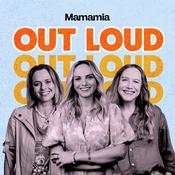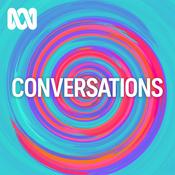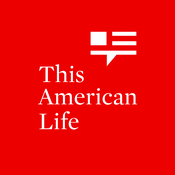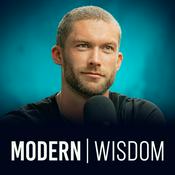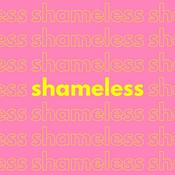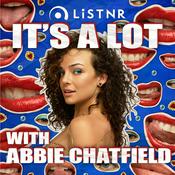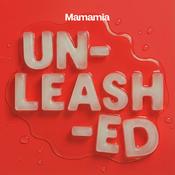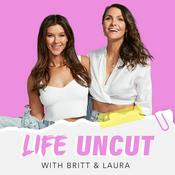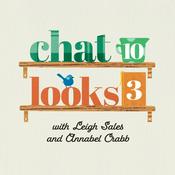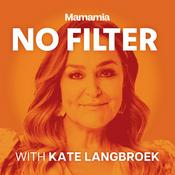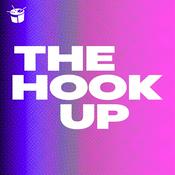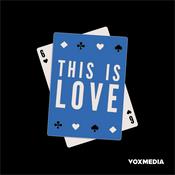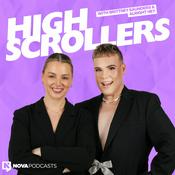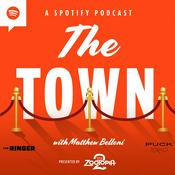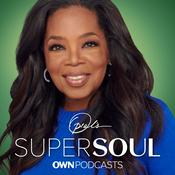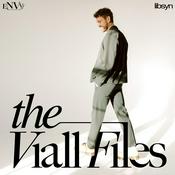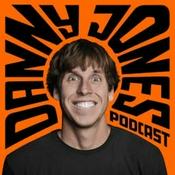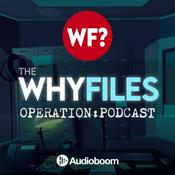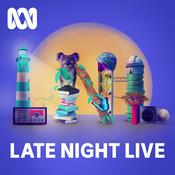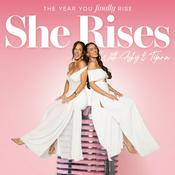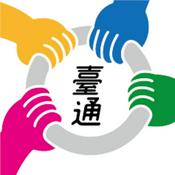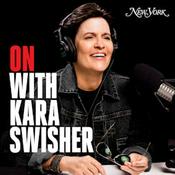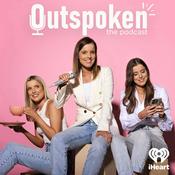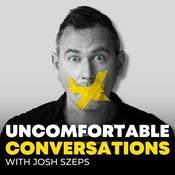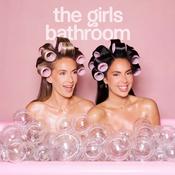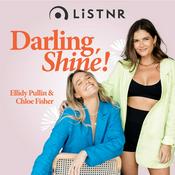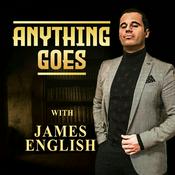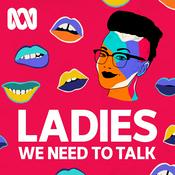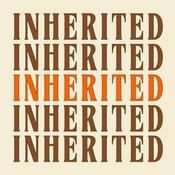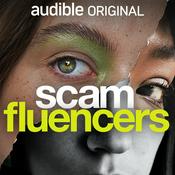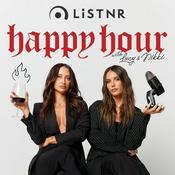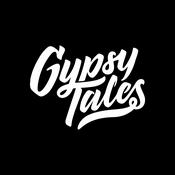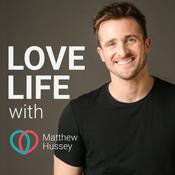87 episodes
- For our final episode for Season 7, we’re thrilled to welcome clinical psychologist and lived-experience speaker, Lumen Gorrie (they / them), to speak with us about gender diversity. Lumen is a queer, trans, multiply neurodivergent, chronically ill, and disabled person based in Naarm. Lumen is passionate about neurodivergence, gender, queerness, disability and accessibility, making systemic change, and (in their words) neuroqueering the heck out of things!
We cover a lot in this chunky ep! Including:
What neurodivergence means to Lumen and how to respond to when people say, ‘don’t make this your whole identity!’
Lumen’s path to discovering their own neurodivergence.
Definitions: Lumen takes us through the difference between sex, gender, and sexuality.
Lumen’s gender identity and their path to exploring and discovering this.
Ways that Lumen experienced gender incongruence and dysphoria, and how they reclaimed connection to self.
When an eating disorder is stemming from gender dysphoria.
The interplay between gender diversity, neurodivergence, and other aspects of their identity for Lumen.
What does gender affirming care look like and myths about gender diversity and trans-ness that get in the way of this care.
Reflecting on gender affirming language.
Lumen’s tips for those exploring their gender.
You can find Lumen at their websites – LG Psychology and Appetite for Change Project – and on Instagram @brains.beyond.binaries and @appetite_for_change_project.
Things we mentioned:
Sexual Orientation and Autism (George & Stokes, 2018).
Trans Healthcare and Neurodiversity Factsheet
Factors leading to ‘de-transition’ or ‘re-transition’ (Turban et al., 2021).
Gender affirming surgery having one of the lowest regret rates of all surgeries (Thornton, Edalatpour, & Gast, 2024).
Organisations, listings, and resources
TransHub – www.transhub.org.au
Trans Heath Research – www.transresearch.org.au
Trans Wellbeing – www.transwellbeing.com
Transcend Australia – www.transcend.org.au
ACON - www.acon.org.au
Equinox – www.equinox.org.au
Community-led national directory of services and groups for TGD folk – www.trans.au
Gender Minorities Aotearoa – www.genderminorities.com
Switchboard – www.switchboard.org.au
Sock Drawer Heroes – www.sockdrawerheroes.com
Got questions for us?? Come along to our LIVE Q&A event! Held online on 27th June (with replay available to all ticket holders). Grab a ticket here and submit your question!
Enjoyed this episode and want more content? Join our Patreon community! Patreon subscribers receive ad-free episodes, basic episode transcripts from Season 4 onwards, 50% off our episode articles, plus access to a huge backlog of bonus content, including bonus episodes, access to online courses, tip sheets and workbooks, and guided meditation practices. Check out our Patreon page to support us, as we aim to make quality mental health care information accessible to everyone: www.patreon.com/ndwomanpod.
Want polished copies of our episodes in beautiful and readable pdf article format? Grab them here.
Contact us at [email protected], or visit our website: www.ndwomanpod.com
See omnystudio.com/listener for privacy information. Living Regional, Rural, and Remote as a Neurodivergent Person with Avril Fazel
08/06/2025 | 1h 29 mins.This week Monique chats with Avril Fazel about living in regional, rural, and remote areas as a neurodivergent person. Avril lives on the lands of Kuungkari, Bidjera and Inningai peoples, between the rural towns of Blackall and Tambo in outback Queensland. She identifies as intersectional feminist with lived experiences in mental illness and neurodivergence, and her social discourse is influenced by her backgrounds in education, community work, and being a local grazier.
We hope you enjoy this beautiful chat as much as we did!
Monique and Avril cover:
How Avril thinks about neurodivergence and the importance of curiosity.
Avril’s path to understanding her own neurodivergence and to diagnosis at 50.
Barriers to services when living rural and remote.
The proportion of people living regional, rural, and remote experiencing disability, and why neurodivergent folk might gravitate to these areas.
Avril’s experience of community in her local area, and balancing solitude with community engagement.
Avril’s experience of the nature and sensory-based components of living rurally.
How Avril’s deep interest in understanding different ways of learning impacted her teaching.
The importance of transparent communication and modelling self-understanding and self-regulation strategies when teaching kids.
Avril’s current special interests.
Things we mentioned:
Queensland State Government’s Assessment and Referral Team (ART)
Fact sheet on disability access to the NDIS in rural Australia.
Check-UP Access for All project - an education tool and app to help medical and allied staff better understand disability.
Edward de Bono’s Six Thinking Hats
Got questions for us?? Come along to our LIVE Q&A event! Held online on 27th June (with replay available to all ticket holders). Grab a ticket here and submit your question!
Enjoyed this episode and want more content? Join our Patreon community! Patreon subscribers receive ad-free episodes, basic episode transcripts from Season 4 onwards, 50% off our episode articles, plus access to a huge backlog of bonus content, including bonus episodes, access to online courses, tip sheets and workbooks, and guided meditation practices. Check out our Patreon page to support us, as we aim to make quality mental health care information accessible to everyone: www.patreon.com/ndwomanpod.
Want polished copies of our episodes in beautiful and readable pdf article format? Grab them here.
Contact us at [email protected], or visit our website: www.ndwomanpod.com
See omnystudio.com/listener for privacy information.- In this week’s episode we’ll be discussing family violence and domestic abuse. These are important conversations, but they can also be distressing or triggering for some listeners. If this episode feels too difficult to listen to right now, please take care of yourself and consider coming back to it when you feel ready—or just skipping it altogether. And if you or someone you know is currently experiencing domestic abuse, please know that you're not alone and that support is available. We’ve included links and resources below if you need help or someone to talk to.
This week we’re speaking to Patricia Gallagher about domestic and family violence. Patricia is a neuro-affirming registered psychologist, EMDR Accredited Practitioner with EMDRAA, and a Board Approved Supervisor, with over 16 years of experience across diverse settings. She currently works with clients from her private practice based in Melbourne, Gallagher Psychology. Patricia’s niche is in working with women affected by domestic violence, family violence, and childhood trauma; supporting them to heal and rise above the ashes of shame and trauma. In addition to her clinical work, Patricia is a sought-after trainer, supervisor, and speaker in the fields of trauma and family violence.
In this episode we cover:
What neurodivergence means to Patricia + her experience of being at the early stages of her exploration of her own neurodivergence.
The definition of family and domestic violence and the different forms of abuse that come under this definition.
What is ‘covert’ abuse.
Understanding the cycle of abuse that commonly occurs, and factors that play into this.
Common traits and emotional experiences of perpetrators.
What is ‘coercive control’.
The factors that increase the likelihood of disabled, neurodivergent, and / or previously traumatised folk being targeted for domestic and family abuse.
Logistical and emotional barriers to leaving situations of domestic abuse.
Patricia’s approach to supporting people’s recovery from domestic and family violence.
The shark cage exercise for building boundaries.
Tips and resources for anyone experiencing domestic or family violence.
Things we mentioned:
Australian statistics on the prevalence of domestic and family violence.
Study on the prevalence of intimate partner violence in Australia.
Royal Commission into rates of family, domestic, and sexual violence of women and girls with disability.
Australian Government Coercive Control Fact Sheet
Ursula Benstead’s Shark Cage
Connect with Patricia through her Instagram @gallagherpsychology or @patriciagallagher, Facebook page, Gallagher Psychology, and her website, www.gallagherpsychology.com.au.
Looking for support with situations of domestic or family violence? Try these resources:
Australia wide
1800RESPECT (Ph. 1800 737 732) - National sexual assault, domestic and family violence counselling service. Offers phone and online chat support 24/7.
Relationships Australia (Ph. 1300 364 277) - Counselling and support for individuals and families experiencing relationship breakdown or violence.
Women's Legal Services - Provide free legal advice and assistance on domestic and family violence, family law, child protection.
QLife (Ph. 1800 184 527 - 3pm–midnight daily) - LGBTQIA+ peer support and referral.
Are You Safe at Home?
Ask Izzy - Search tool for nearby shelters, food, legal help, and more.
Some state based services
Safe Steps (Victoria) (Ph. 1800 015 188) - 24/7 family violence response line for women and children in Victoria.
InTouch Multicultural Centre Against Family Violence (Victoria) (Ph. (03) 9413 6500 / 1800 755 988) - Culturally sensitive family violence support for migrant and refugee women in Victoria.
DVConnect (Queensland) (Women's line: 1800 811 811; Mensline: 1800 600 636) - Crisis counselling and referrals for people experiencing domestic and family violence.
Immigrant Women's Support Service (Queensland) (Ph. (07) 3846 3490) - Support for migrant and refugee women experiencing domestic and sexual violence.
Domestic Violence Crisis Service (ACT) (Ph. (02) 6280 0900) - Services for people affected by domestic violence in the ACT.
Aboriginal Family Domestic Violence Hotline (NSW) ( only: 1800 019 123) - A dedicated line for Aboriginal victims of crime who need counselling, information, and referrals.
Got questions for us?? Come along to our LIVE Q&A event! Held online on 27th June (with replay available to all ticket holders). Grab a ticket here and submit your question!
Enjoyed this episode and want more content? Join our Patreon community! Patreon subscribers receive ad-free episodes, basic episode transcripts from Season 4 onwards, 50% off our episode articles, plus access to a huge backlog of bonus content, including bonus episodes, access to online courses, tip sheets and workbooks, and guided meditation practices. Check out our Patreon page to support us, as we aim to make quality mental health care information accessible to everyone: www.patreon.com/ndwomanpod.
Want polished copies of our episodes in beautiful and readable pdf article format? Grab them here.
Contact us at [email protected], or visit our website: www.ndwomanpod.com
See omnystudio.com/listener for privacy information. - This week Monique welcomes Arnikka de Kort to the podcast, to chat about breastfeeding and infant sleep.
Arnikka is an International Board-Certified Lactation Consultant (IBCLC), Neonatal Nurse and Founder of SuckleBubs - a space that reimagines how women and babies are supported in the early weeks of newborn life. She is also the creator of In Bloom - a postpartum and breastfeeding mentorship program guiding mothers through their transition to motherhood, from pregnancy and into postpartum. Drawing from her clinical and lived experience as a neurodivergent mother, Arnikka blends her clinical skills with a deeply attuned and compassionate approach to the care of mothers and babies.
This ep is packed with knowledge gems direct from Arnikka’s brain, so flick it on to anyone you know who is pregnant or postpartum, neurodivergent or not!
Monique and Arnika cover:
What is an IBCLC?
What neurodivergence means to Arnikka and her personal journey to discovering her own neurodivergence and the self-acceptance that came with that.
Arnikka’s personal experience as a neurodivergent mother with birth and breastfeeding.
The variability in infant sleep needs.
The interrelationship between infant sleep, feeding, and baby’s sensory needs.
Some of the key challenges parents face in their infant feeding journey, including those specific to neurodivergent mothers.
Dysphoric Milk Ejection Reflex (D-MER).
Arnikka’s tips for parents experiencing infant feeding challenges.
Tips for problem solving issues with infant sleep and supporting infant circadian development.
Elements of pregnancy, birth, and infant care that can be particularly challenging for neurodivergent mothers and tips to manage these.
Things we mentioned:
Before the Letdown: Dysphoric Milk Ejection Reflex and the Breastfeeding Mother by Alia Macrina Heise
The NDC institute – free resources and a practitioner directory.
Motherkind by Zoe Blaskey
Mama Rising by Amy Taylor-Kabbaz
Connect with Arnikka through her website, Suckle Bubs, or on Instagram @sucklebubs.
Enjoyed this episode and want more content? Join our Patreon community! Patreon subscribers receive ad-free episodes, basic episode transcripts from Season 4 onwards, 50% off our episode articles, plus access to a huge backlog of bonus content, including bonus episodes, access to online courses, tip sheets and workbooks, and guided meditation practices. Check out our Patreon page to support us, as we aim to make quality mental health care information accessible to everyone: www.patreon.com/ndwomanpod.
Want polished copies of our episodes in beautiful and readable pdf article format? Grab them here.
Contact us at [email protected], or visit our website: www.ndwomanpod.com
See omnystudio.com/listener for privacy information. - On this week’s episode Monique chats with two amazing guests – Specialist GP Dr Megan Thomas (she / they) and Clinical Psychologist Bianca Comfort (she / her) – about Ehlers Danlos Syndrome (EDS), Postural Orthostatic Tachycardia Syndrome (POTS), and Mast Cell Activation Disorder (MCAS).
Dr Megan is a queer, disabled, neurodivergent doctor with lived experience of EDS, POTS, MCAS, and related conditions. She is a GP Specialist and one of the Founding Directors of Connected Health Alliance, an EDS CORE Network of Excellence and health promotion charity working to improve the lives of hypermobile humans through the provision of interdisciplinary healthcare, clinician education, and research. Megan is a passionate advocate of holistic, trauma-informed, person-centred care that is affirming for people of all neurotypes, identities, and experiences.
Bianca is a Melbourne-based neurodivergent Clinical Psychologist and is the Director of Comfort Psychology, a telehealth practice focused on chronic illness and neurodivergence. She is also the Vice President of the Australian Psychological Society (APS), and Co-Chair of the Australian EDS & HSD Network. Bianca's expertise lies in the intersection between neurodivergence and chronic illnesses such as EDS, POTS, and MCAS. Drawing from both her professional and lived experience, Bianca is a passionate advocate and educator.
Monique, Megan, and Bianca cover:
Megan and Bianca share what neurodivergence means to them, and their experiences as neurodivergent health practitioners with chronic illnesses.
What are EDS, POTS, and MCAS, and how are these conditions diagnosed?
Why do we see EDS, POTS, and MCAS commonly occurring together?
How do these three conditions relate to Autism and ADHD?
Factors to consider when managing multiple co-occurring conditions.
The triple empathy problem.
The types of supports people may need if they have these conditions.
How to access support.
Things we mentioned:
The Beighton Score System for EDS and the Hakim 5 questionnaire for hypermobility can be found on the Ehlers-Danlos Society website.
Mast Cell Mediator Release Syndrome Questionnaire.
The EDS Society
The Australian POTS foundation
The Australian EDS and HSD Network
The Australian Mastocytosis Society
Studies on the overlap between EDS, Autism, and ADHD: Cederlöf et al., 2016; Dogan et al., 2011; Shiari et al., 2013; Csecs et al., 2020; Csecs et al., 2022.
Research on “clinician associated trauma” experienced by patients with EDS - Halverson, Penwell, & Francomano, 2023.
Find Bianca at her clinic, Comfort Psychology, and on Instagram @comfortpsychology. Find Megan through her website, Dr Megan Thomas, or her clinic, Connected Health Alliance, and on socials @drmeganthomas and @connectedhealthalliance.
Enjoyed this episode and want more content? Join our Patreon community! Patreon subscribers receive ad-free episodes, basic episode transcripts from Season 4 onwards, 50% off our episode articles, plus access to a huge backlog of bonus content, including bonus episodes, access to online courses, tip sheets and workbooks, and guided meditation practices. Check out our Patreon page to support us, as we aim to make quality mental health care information accessible to everyone: www.patreon.com/ndwomanpod.
Want polished copies of our episodes in beautiful and readable pdf article format? Grab them here.
Contact us at [email protected], or visit our website: www.ndwomanpod.com
See omnystudio.com/listener for privacy information.
More Society & Culture podcasts
Trending Society & Culture podcasts
About The Neurodivergent Woman
A podcast for neurodivergent women, hosted by clinical psychologist Monique Mitchelson and clinical neuropsychologist Michelle Livock. Covering Autism to ADHD and everything in between, we aim to educate and inspire women who think differently.
Podcast websiteListen to The Neurodivergent Woman, Mamamia Out Loud and many other podcasts from around the world with the radio.net app
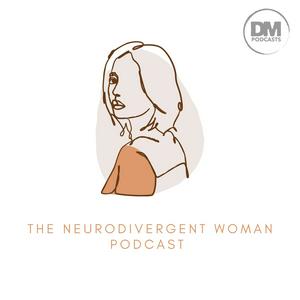
Get the free radio.net app
- Stations and podcasts to bookmark
- Stream via Wi-Fi or Bluetooth
- Supports Carplay & Android Auto
- Many other app features
Get the free radio.net app
- Stations and podcasts to bookmark
- Stream via Wi-Fi or Bluetooth
- Supports Carplay & Android Auto
- Many other app features


The Neurodivergent Woman
Scan code,
download the app,
start listening.
download the app,
start listening.

